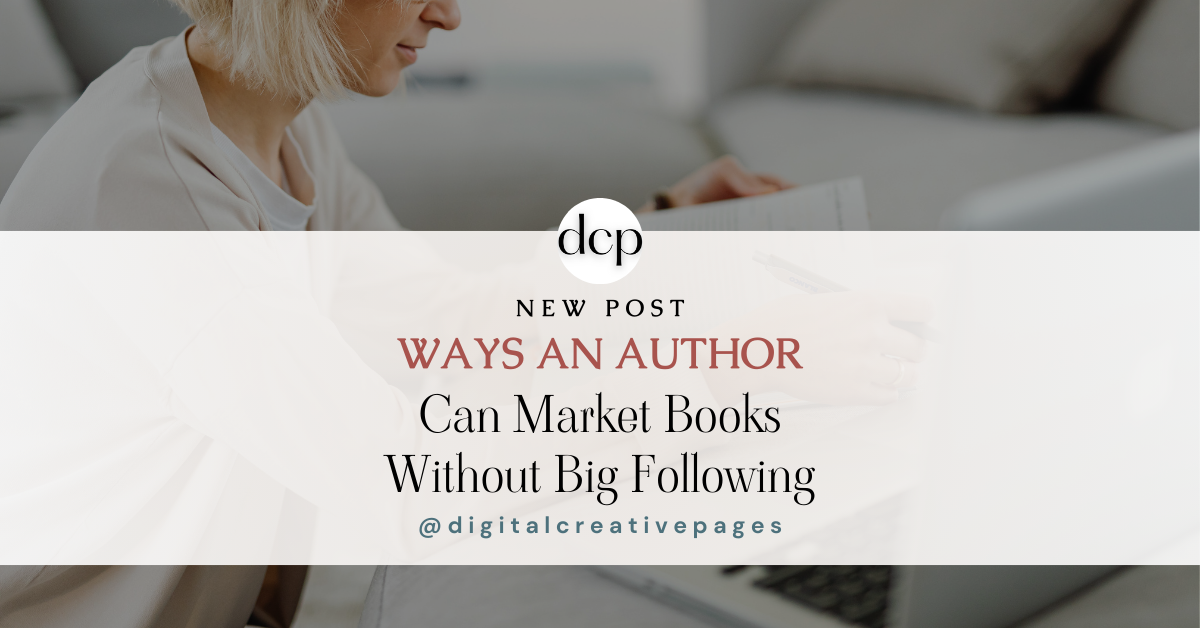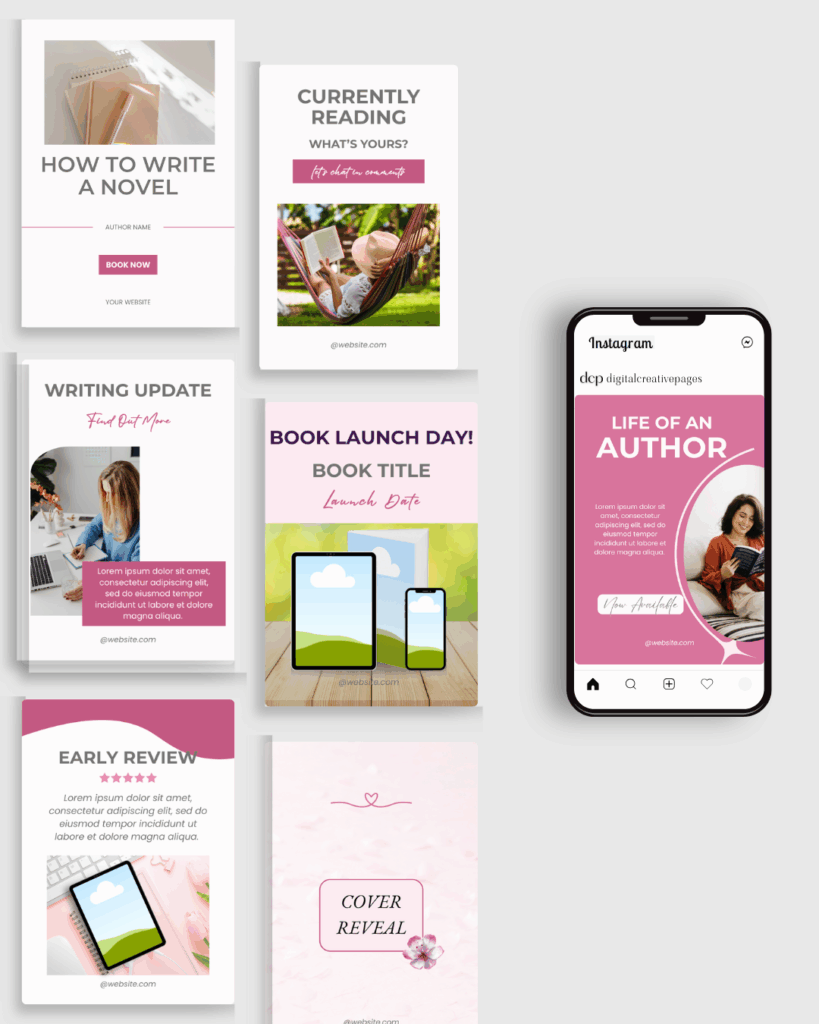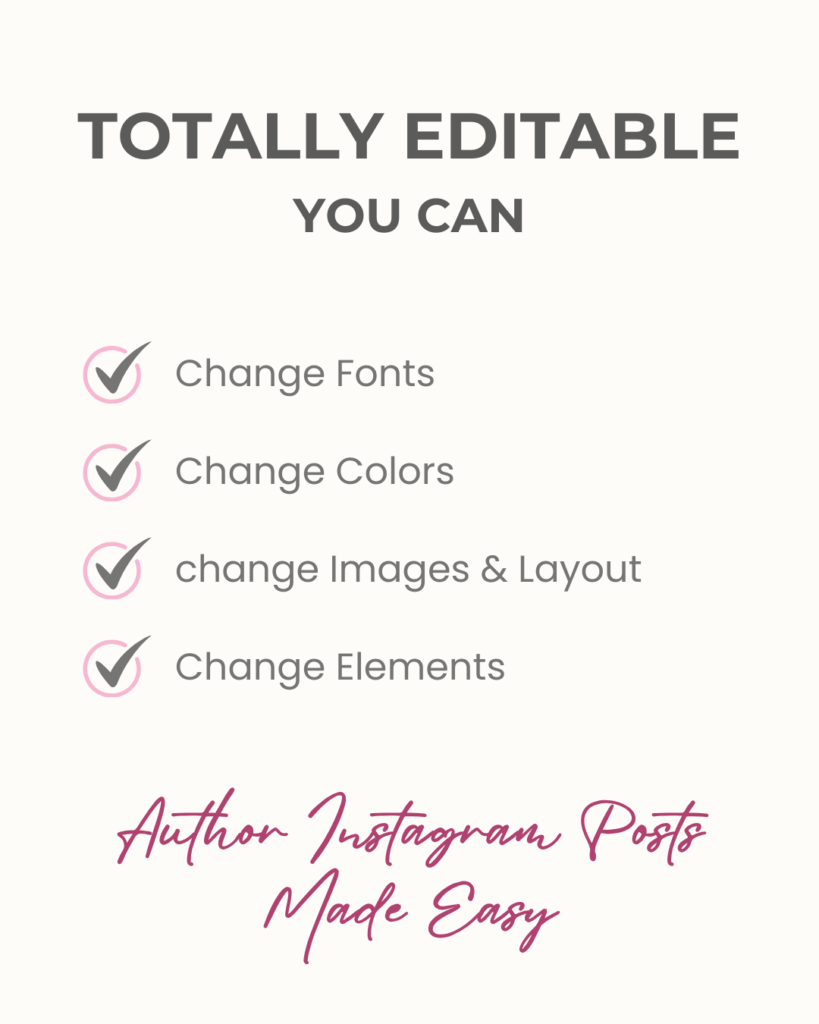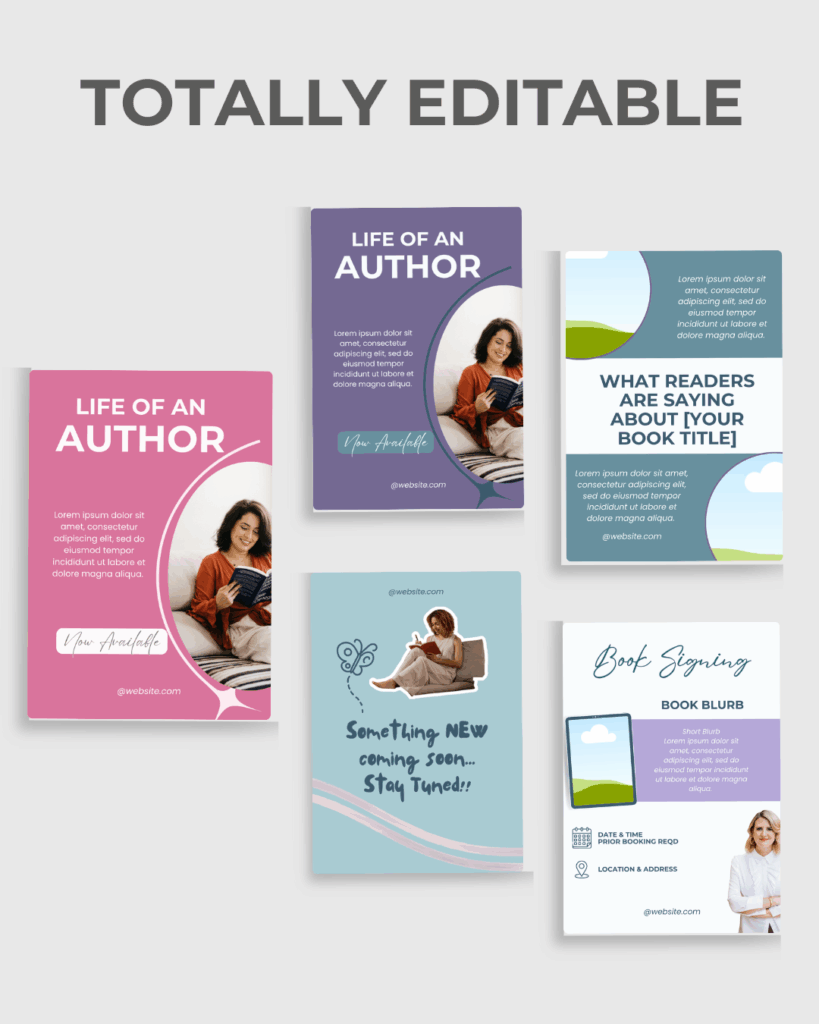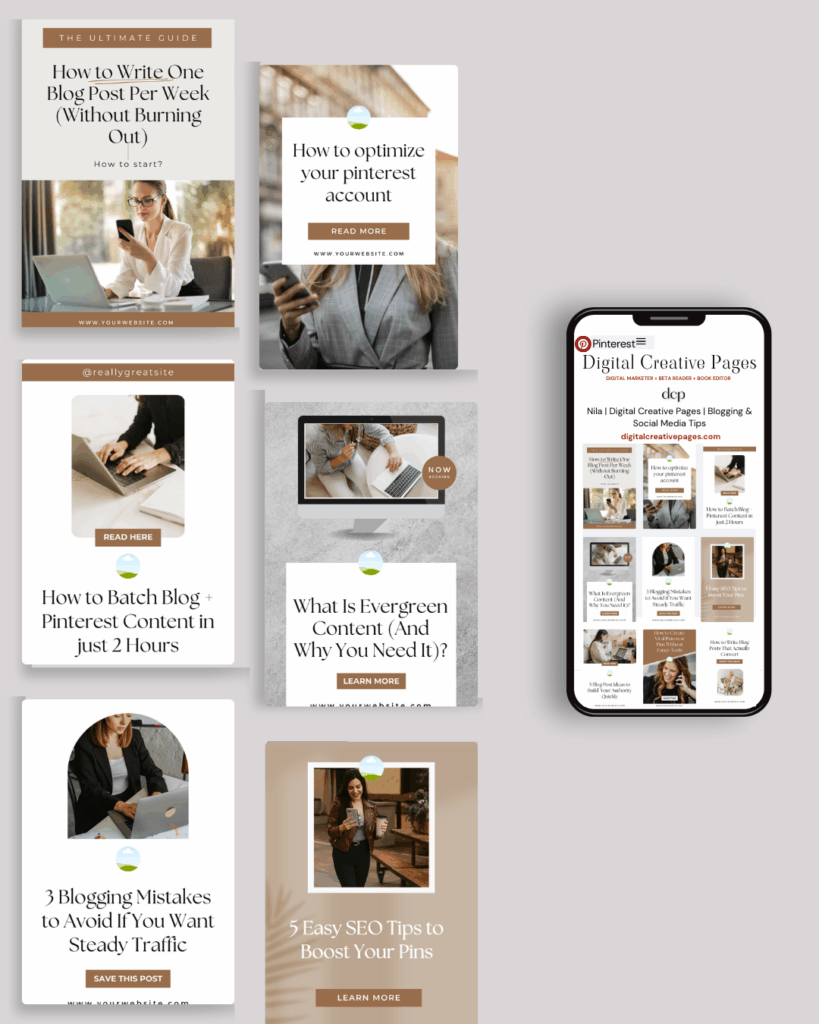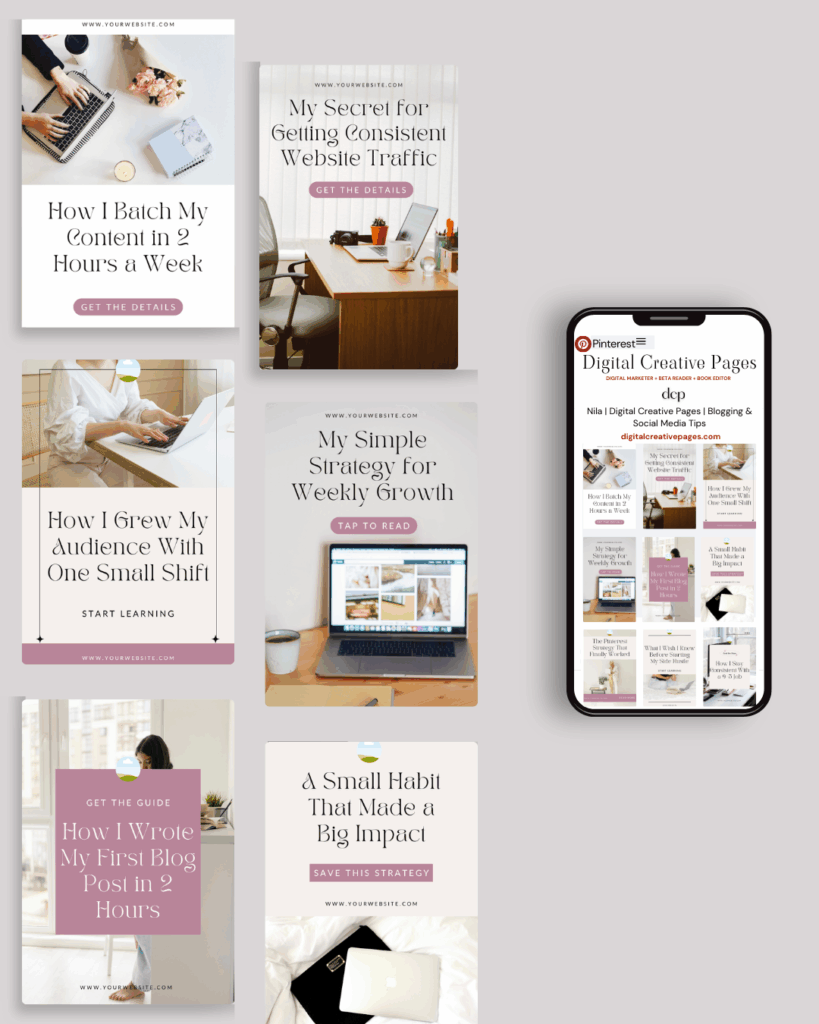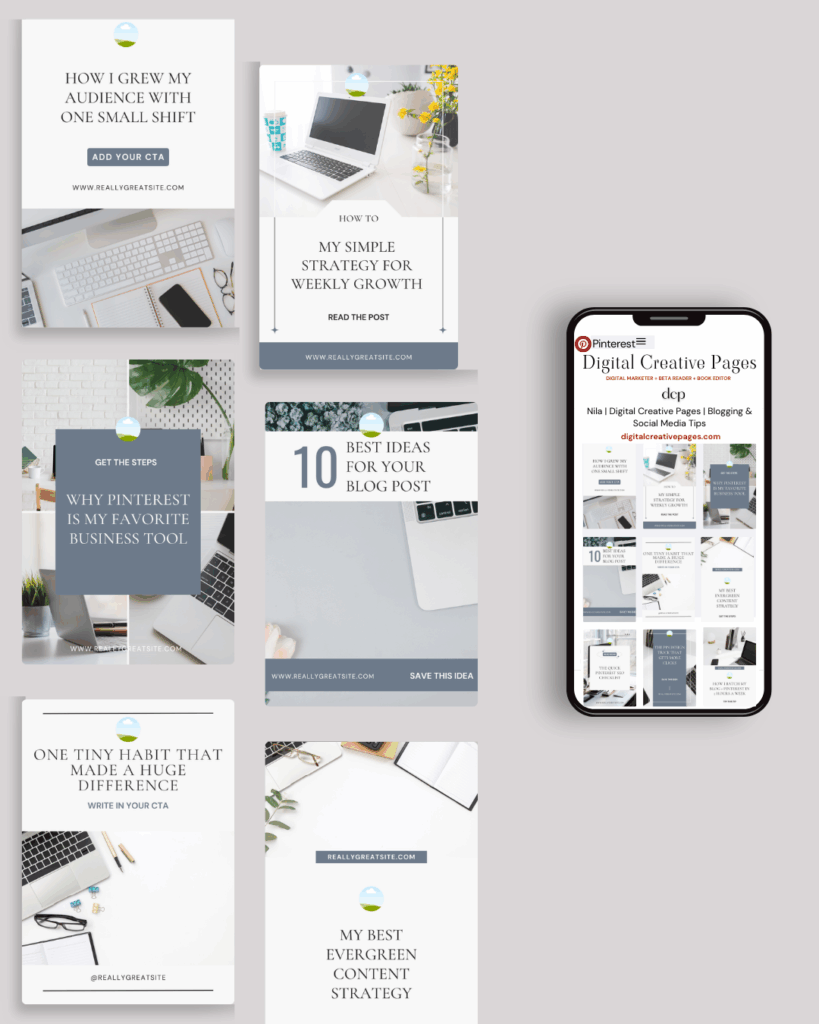Introduction
Hey there. When you’re an author, the idea of marketing your book might feel overwhelming—especially if you don’t have thousands of followers on social media. The myth that you need a huge audience to successfully market your book often stops many writers from even trying. But here’s the truth: you don’t need a massive following, and there are ways an author can market their books effectively without a big following.
In fact, smaller, more engaged audiences often lead to better results. The key is to work smarter, not harder. By focusing on targeted strategies and connecting with the right readers, you can build momentum and sell your book even without a gigantic online presence.
Let’s dive into why a large following isn’t necessary and how you can make a significant impact with a smaller audience.
Pin this for later
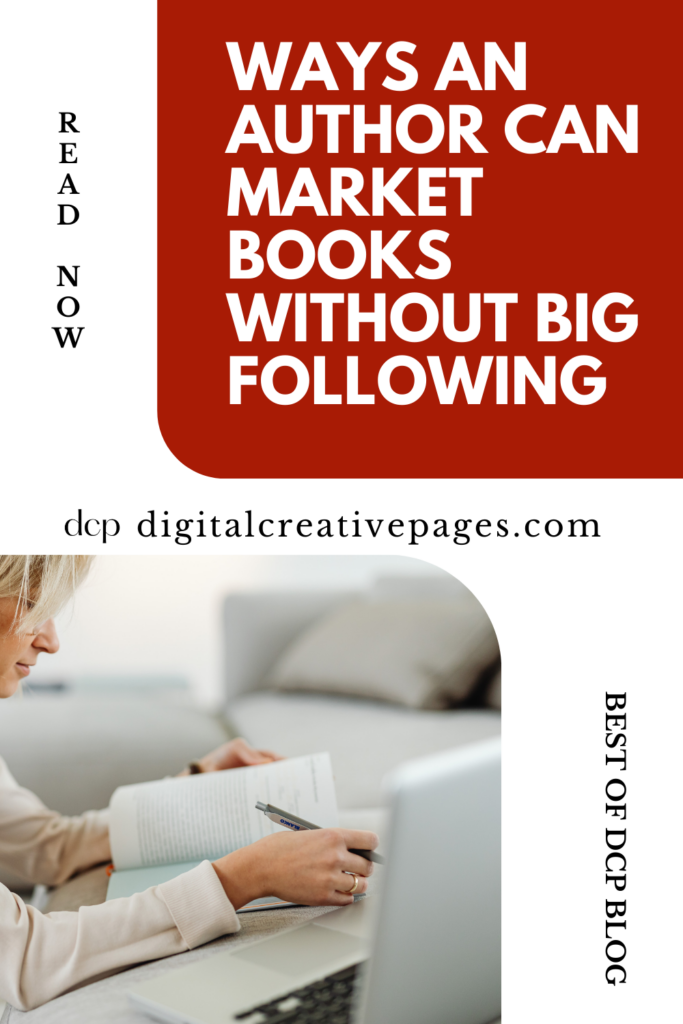
1. Quality Over Quantity: Engaged Readers Matter Most
It’s not about how many people follow you; it’s about how many of them actually care. A smaller audience that’s truly interested in your work will always outperform a larger, disengaged one. When your followers are passionate about your niche or genre, they’re more likely to buy your book, leave reviews, and share your work with others.
Why This Works:
- Authentic Connections: Engaged readers are more likely to trust you and your recommendations.
- Higher Conversion Rates: If you have 100 followers and 30% of them buy your book, that’s 30 sales. With 1,000 disengaged followers and a 1% conversion rate, you’d only sell 10.
- Better Word-of-Mouth: People who love your work are more likely to tell others, creating organic buzz.
How to Build an Engaged Audience:
- Share behind-the-scenes stories about your writing process.
- Respond to comments and messages personally.
- Create content tailored to your readers’ interests, like book recommendations or writing tips.
Pro Tip: Use email marketing to nurture these connections. Even with a small list, you can engage readers directly without worrying about social media algorithms. Tools like MailerLite or ConvertKit are great for beginners.
Related Post: 7 Tasks For Authors To Increase Their Online Presence
Want easy, practical content tips to grow your business? Join my weekly email list for Canva tricks, new social media updates, and simple strategies that actually work.
2. Your Niche Is Your Superpower
Trying to appeal to everyone is a recipe for frustration. Instead, focus on your niche—the specific group of people who will love your book. Whether you write cozy mysteries, self-help, or epic fantasy, there’s a dedicated audience for your genre. By honing in on their needs and interests, you can market more effectively.
Benefits of Targeting Your Niche:
- Less Competition: You won’t be competing with every author out there, just those in your specific genre.
- Stronger Connections: Niche audiences tend to be highly passionate and loyal.
- Clearer Messaging: You can tailor your marketing to address their specific desires and pain points.
Steps to Define Your Niche:
- Identify your genre and subgenres.
- Research the demographics of your ideal readers (age, interests, habits).
- Hang out in spaces where your readers spend time, like online forums or genre-specific Facebook groups.
Pro Tip: Create content that resonates with your niche. For example, if you write historical fiction, share fun facts about the time period you’re writing about. This builds interest and positions you as an authority.
3. Leveraging Personal Relationships and Word-of-Mouth
Your first marketing strategy doesn’t have to involve strangers on the internet. Friends, family, colleagues, and acquaintances can be some of your biggest cheerleaders when you launch your book. They already know you, so they’re more likely to support your work and spread the word.
Why Personal Connections Matter:
- Built-In Trust: People who know you are more likely to give your book a chance.
- Free Publicity: Friends sharing your book with their networks expands your reach exponentially.
- Motivation Boost: Early support can help you stay encouraged during the marketing process.
How to Engage Your Inner Circle:
- Send personalized messages asking them to check out your book or share it.
- Offer to sign copies for friends and family as gifts.
- Ask them to leave reviews on platforms like Amazon or Goodreads.
Pro Tip: Don’t just ask for favors—make it fun! Host a small book launch party, virtual or in-person, where your loved ones can celebrate your accomplishment and share in your excitement.
Related Post: How to Create Content from Your Book for Social Media
4. The Power of Reviews and Testimonials
Reviews are one of the most powerful tools for marketing your book, and you don’t need a big following to get them. A handful of thoughtful, honest reviews can give potential readers the confidence to take a chance on your work.
Why Reviews Are Crucial:
- Social Proof: Readers trust other readers more than ads.
- Search Visibility: Reviews improve your book’s ranking on platforms like Amazon.
- Momentum: A few good reviews can snowball into more as readers discover your book.
How to Gather Reviews:
- Reach out to early readers, beta readers, or ARC (Advanced Reader Copy) recipients.
- Ask friends and family to leave reviews if they’ve read your book.
- Offer free copies in exchange for honest reviews through platforms like BookFunnel or Goodreads.
Pro Tip: Avoid asking for generic reviews. Instead, guide readers to mention specific aspects they enjoyed, such as character development or plot twists. This makes the reviews more compelling to others.
Related Post: Build An Author Platform Before Your Book Launch
Struggling to keep your author platform active while juggling writing deadlines?
My Author Book Engagement Template Pack includes 112 ready-to-use Canva designs for Instagram and Pinterest. Perfect for cover reveals, book launches, reader engagement, and everything in between. No more staring at blank Canva pages wondering what to post! These templates work for any genre and require no Canva Pro account. Simply download, customize with your book details and brand colors, and post.
For less than the cost of 2 lattes, get your template pack here, and never run out of engaging content ideas again
5. Collaborate with Other Authors
Author collaborations are a goldmine for book marketing. When you team up with other writers in your genre, you can cross-promote each other’s work and tap into their audiences—no huge following required.
Benefits of Collaborations:
- Audience Sharing: Gain exposure to readers already interested in your genre.
- Credibility Boost: Partnering with established authors can enhance your reputation.
- Cost Savings: Pooling resources for promotions or giveaways reduces individual expenses.
Ways to Collaborate:
- Co-host a webinar or virtual panel discussing your genre or writing process.
- Participate in anthology projects with other authors.
- Promote each other’s books through email newsletters or social media.
Pro Tip: When collaborating, focus on authors whose audiences align with your niche. This ensures your efforts reach the right people and yield better results.
6. Organic Social Media Growth with Strategic Content
While you don’t need a large following, social media can still be a valuable tool for connecting with readers. The key is to prioritize quality over quantity and post content that encourages interaction.
Tips for Strategic Social Media Use:
- Consistency is Key: Post regularly to stay visible.
- Mix It Up: Share a mix of promotional posts, personal updates, and valuable content (like tips or trivia related to your genre).
- Engage: Reply to comments, ask questions, and build genuine connections.
Ideas for Social Media Content:
- Behind-the-scenes looks at your writing process.
- Fun facts or insights related to your book’s theme or setting.
- Reader polls or Q&A sessions.
Pro Tip: Don’t spread yourself too thin by being on every platform. Choose one or two platforms where your target readers are most active and focus your efforts there.
Related Post: Strategize Your Author Platform For Book Launch
7. The Magic of Local Marketing
Your local community can be an incredible resource for marketing your book. By leveraging in-person opportunities, you can build a loyal fan base close to home.
Why Local Marketing Works:
- Less Competition: You’ll stand out as a local author.
- Community Support: People love supporting local talent.
- Word-of-Mouth Potential: Events and signings encourage personal connections that lead to recommendations.
Local Marketing Ideas:
- Host a book signing at your local bookstore or library.
- Participate in local fairs, festivals, or writer’s groups.
- Reach out to local media outlets for interviews or features.
Pro Tip: Don’t overlook schools and community centers. Offering to speak about your book or writing journey can open doors to new readers.
Related Post: Why An Author Needs Easy Digital Marketing Strategy
8. The Longevity of Evergreen Content
Unlike social media posts that vanish in days or hours, evergreen content continues to drive traffic and interest over time. Creating blog posts, videos, or podcasts related to your book’s themes can attract readers for months—or even years.
Benefits of Evergreen Content:
- Long-Term Visibility: Content remains relevant and searchable.
- SEO Value: Helps potential readers discover your work organically.
- Authority Building: Positions you as an expert in your genre or subject.
Examples of Evergreen Content:
- Blog posts on topics related to your book (e.g., “Top 5 Tips for Writing Historical Fiction”).
- Tutorials or how-tos inspired by your book (e.g., “How to Create Fantasy Maps for Your Novel”).
- Guest posts or podcast appearances on niche topics.
Pro Tip: Use long-tail SEO keywords that reflect what your readers might search for. For instance, instead of “writing tips,” try “writing tips for beginner fantasy authors.”
Related Post: How To Build New Author Website That Converts Readers
9. Don’t Underestimate Book Clubs
Book clubs are fantastic for word-of-mouth marketing. Even if you don’t have a large following, connecting with book clubs—either in person or online—can significantly boost your book’s visibility.
Why Book Clubs Are Effective:
- High Engagement: Members discuss your book in-depth.
- Built-In Audience: Clubs are already looking for new reads.
- Feedback Opportunities: Gain valuable insights from readers’ discussions.
How to Get Involved:
- Offer your book to local book clubs and attend their discussions.
- Share book club discussion questions related to your book on your website.
- Reach out to online book clubs or Facebook groups in your genre.
Pro Tip: Consider offering a special discount or free discussion guide to book clubs that choose your book. This adds value and encourages them to pick your work.
10. Focus on Building an Email List
An email list is one of the most effective ways to market your book, regardless of your following size. Unlike social media, you own your email list, and it allows you to communicate directly with readers.
Advantages of an Email List:
- Direct Access: Reach readers without worrying about algorithms.
- Higher Engagement: Emails often have better click-through rates than social media posts.
- Long-Term Value: You can build lasting relationships with subscribers.
How to Start Building Your List:
- Offer a free resource, like a short story or sample chapter, in exchange for email signups.
- Promote your email list on your website and social media.
- Send regular, valuable content to keep readers engaged.
Pro Tip: Use email to share exclusive updates, such as sneak peeks or behind-the-scenes stories. This makes your subscribers feel special and keeps them excited about your work.
Related Post: Build Your Email List Now With Simple Effective Strategies
11. Tapping into Facebook Book Groups
Facebook book groups are treasure troves for authors looking to connect with avid readers. These groups bring together people who are already enthusiastic about books, often organized by genre or specific reading interests. Joining the right groups allows you to interact with readers who are most likely to enjoy your work.
Why Facebook Groups Work:
- Niche Audiences: Many groups are genre-specific, which means you can connect directly with your target readers.
- Community Engagement: Readers in these groups are highly active, sharing book recommendations and participating in discussions.
- Organic Visibility: Engaging authentically in discussions can generate interest in your book without coming across as overly promotional.
How to Use Facebook Groups for Book Marketing:
- Join groups related to your book’s genre (e.g., “Romance Readers Unite” or “Fantasy Book Club”).
- Participate in conversations by commenting, sharing thoughts, or recommending books (not just your own).
- Share relevant posts, like insights about your writing process or your inspirations, while adhering to group rules.
- Offer your book for group features, such as themed reading lists or group discussions.
Pro Tip: Always read the group rules before posting about your book. Many groups have designated “promo days” or specific guidelines for authors. Engaging as a reader and contributor first builds trust before you mention your work.
12. Newsletter Swaps with Fellow Authors
Newsletter swaps are a fantastic way to market your book to a wider audience without spending a dime. In a swap, you and another author promote each other’s books in your respective newsletters, giving both of you access to new, highly targeted readers.
Why Newsletter Swaps Are Effective:
- Targeted Reach: You’re introducing your book to readers who already love your genre.
- Cost-Effective: Swaps are usually free, requiring only mutual agreement between authors.
- Reciprocal Benefit: Both authors gain exposure and potentially new readers.
Steps to Organize Newsletter Swaps:
- Connect with authors in your genre who have similar-sized email lists.
- Reach out with a polite, clear pitch about swapping newsletter promotions.
- Ensure your promotional message aligns with your collaborator’s audience (and vice versa).
- Track the results to see how many new readers or sales came from the swap.
Pro Tip: Use newsletter swaps strategically around your book launch or promotional periods. Collaborating with authors who share your target audience ensures your book gets in front of the right readers.
Final Thoughts
You don’t need a massive social media following to market your book successfully. By focusing on building genuine connections, targeting your niche, and leveraging creative strategies, you can achieve meaningful results with a smaller audience. Remember, it’s about quality over quantity, and even modest efforts can create a ripple effect that leads to lasting success.
Start where you are, use the tools you have, and stay consistent. Your book deserves to be seen—and with these strategies, it will be.
Loved This Post? Save It for Later!
And hey! If this post helped you, don’t forget to pin it to one of your boards so you can revisit it anytime. And more small business owners and creators can discover these helpful tips. Every save and share genuinely supports my work, and I’m grateful for it! Thank you!
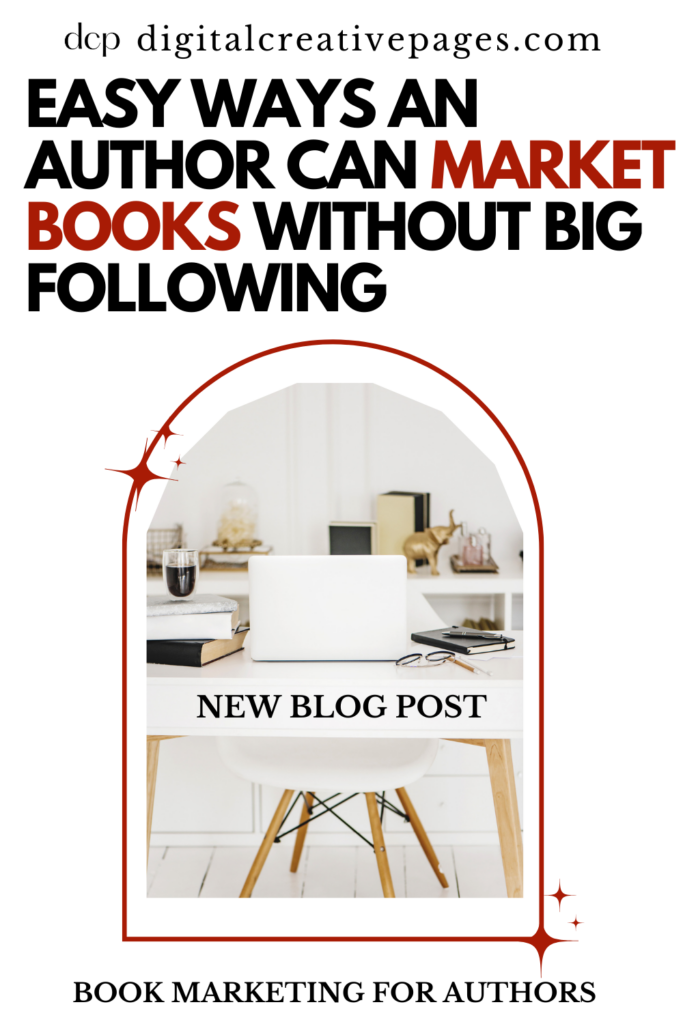
WANT TO MASTER CANVA LIKE A PRO?
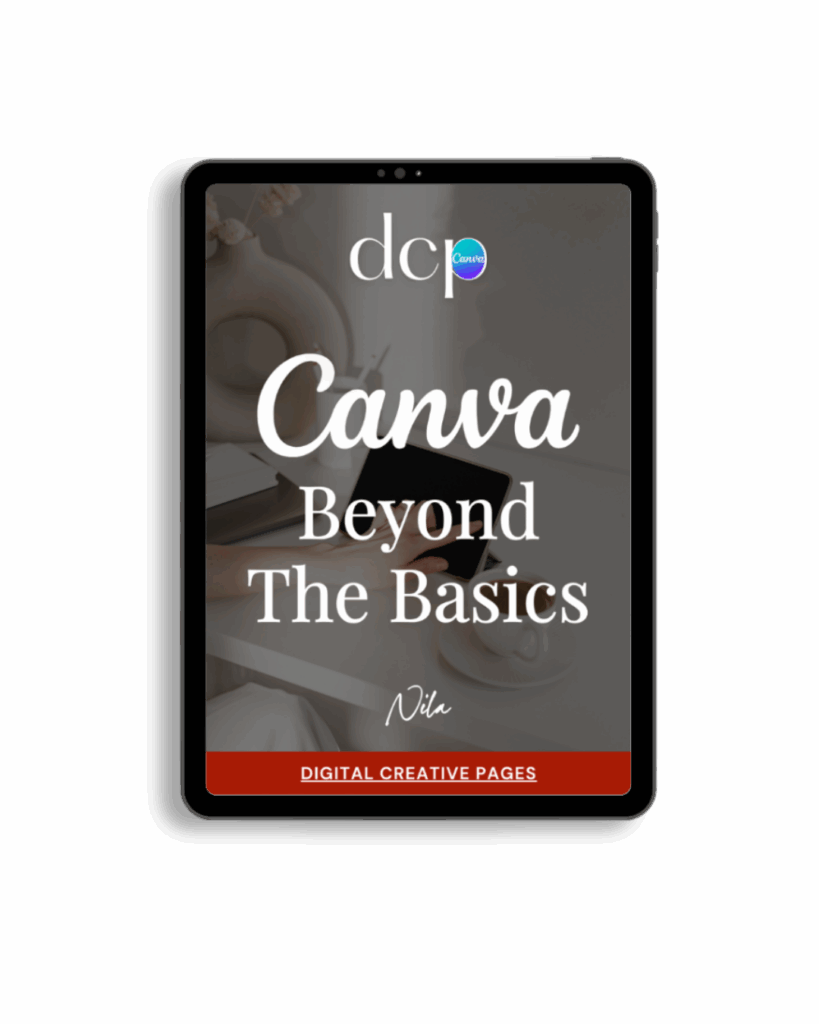
If you’re ready to move beyond basic designs and unlock Canva’s most powerful features, my book Canva – Beyond the Basics is for you.
Learn advanced workflows, time-saving hacks, and features like brand templates that busy entrepreneurs need to create professional content faster. It’s designed for anyone who wants to work smarter, not harder.
TEMPLATES FOR ENTREPRENEURS
No time to design from scratch? My Pinterest Templates are created with strategy, structure, and your brand in mind.
Pick your style: Modern Minimalist | Soft Storytelling | Entrepreneur-Friendly Layouts
For the cost of a latte, get them here → DCP Shop → $5
MY TOP POSTS
My INTRODUCER post – check out why I chose Showit as my website builder here
Use my affiliate code DCP to get one 1.5 months free on Showit
Get all the resources for your online business growth and Pinterest marketing without breaking the bank from my DCP Shop here
By signing up for my freebies, you are agreeing that I can use your email address to market to you. You can unsubscribe from marketing emails at any time by using the link in my emails.
Previous post
next post
Search + Enter
meet nila
Hi. I am
Nila
Beta reader, book editor, Pinterest manager, Showit VA
I’m a beta reader and book editor and PA for authors, specializing in story clarity and developmental feedback. I run a sustainable online business that keeps working for me 24/7.
Along with this, I offer Pinterest management for overwhelmed creatives and entrepreneurs and set up and customize Showit templates when the tech side gets too overwhelming.
My Shop
Buy now
i need it
Free Stuff
get the goods
check it out
My Favorites
apps + Tools
Yes, please
Handpicked Links
Excited to get started? Me too!
i can't wait to
Connect with you
Let's discuss how best I can help you and your business
find your way around
about
for authors
Showit
shop
Blog
freebies
Contact
elsewhere
X
Copyright © 2024 - 2026 Digital Creative Pages | All Rights Reserved | Terms & Conditions | Privacy Policy
Website Template by Digital Creative Pages.
Photos by Styled Stock Society
Subscribe here for weekly Canva & Social Media tips and 10% off in my shop
